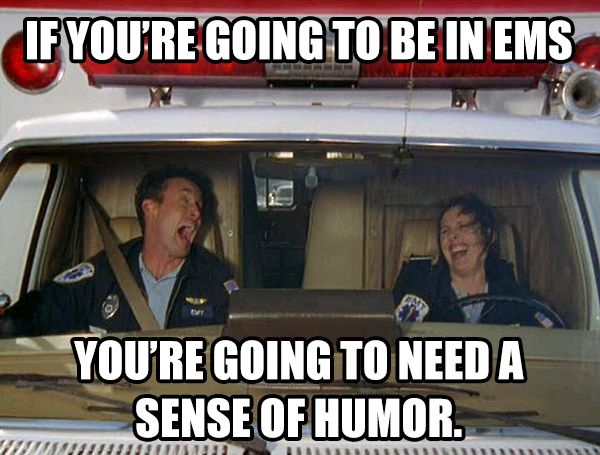By Sean Eddy
EMT school is a great place to build your foundation of medical knowledge.
You’re going to learn everything from essential components of human anatomy to outdated spinal immobilization practice. What you aren’t going to learn is how to survive the daily grind of EMS work.
1) How to pick out your radio call sign in your sleep
It doesn’t matter if you’re working a 12-hour shift doing system status or a 24-hour shift in a station. There will come a time when you fall asleep and will have to rely on your ability to scan radio traffic in an unconscious state. This is an absolute must, because no matter what you do, you will be sleep deprived at many points throughout your career.
In my prime, I was working night-shifts in a busy metropolitan system and could somehow manage to not only fall asleep in the most uncomfortable position known to man (AKA the front seat), but actually filter through the non-stop radio chatter and become completely alert at the sound of our unit call-sign.
2) How to get off work on time
This is the king of all skills, but it’s an imperfect science. There are things you can do to greatly reduce your chances of failure. Jumping a sacrificial nursing home call or long distance transfer is a good start. Learning how to work the system is even better.
When working for system status management service (street corner posting), I had this down to a science that only the most sophisticated of mathematicians could comprehend. I had a five-step process that started sometime around the middle of my shift. This would ultimately land me at the closest geographical hospital to our main station and clearing approximately 10 minutes prior to my assigned off-duty time.
3) How to effectively smile and nod
This applies to the supervisor that should have retired 12 years ago telling you about how “we’ve always done it” as well as the person that finds it appropriate to interrupt your meal to play show-and-tell with their diabetic foot that‘s turned a shade of black you didn’t know existed. Learning how nod your head, smile, and throw in acknowledging terms like “yeah” or “that‘s crazy” in convincing intervals while completely ignoring what‘s being said is one of the most valuable things you’ll do.
4) How to be happy and miserable at the same time
We often find ourselves in situations that would make any reasonable person want to run, vomit, cry or all of the above. Yet, somehow we manage to crack a joke and entertain our coworkers with another dinner table war story after returning to the station. It’s a strange phenomenon. We almost pride ourselves on being able to stomach the worst of the worst.
5) How to complain
Sure, everyone knows how to complain, but to achieve the level of complaining that EMS providers have managed to reach is no easy task. When you get to the point where you complain so much that people don’t know if you’re complaining or just talking, you know you’re getting close.
The true masters of the profession have actually figured out a way to complain about complaining. However, this is a skill that should only be left to truly experienced professionals. This is almost like traveling back in time and seeing yourself. If you’re not careful, this level of compound complaining can disrupt the space-time continuum and threaten the integrity of the universe.

















